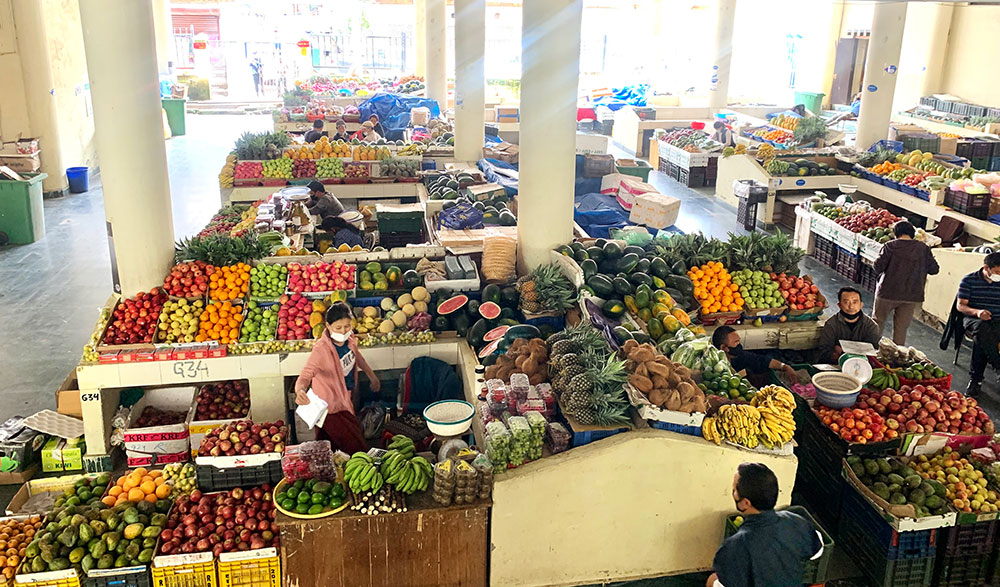… CFM management to propose lifting the restrictions
Yangyel Lhaden
The government’s effort to decongest Centenary Farmers’ Market (CFM) in the wake of the pandemic has been challenging for CFM management with farmers occupying the vacant counters.
The market was closed on September 11 last year through a notice from the Prime Minister’s Office that stated that the vendors will be given priority to move to the new markets in zones across Thimphu Thromde. CFM vendors, however, were reluctant to sell from the markets in the zones, forcing CFM to operate at one-third of its capacity from October last year.
Between Wednesday and Monday from morning until afternoon the market is occupied by vendors and farmers occupying the counters crowding the place. By evening, farmers return home after selling their produce.
To date, 112 vendors from the CFM have left to vegetable markets in the zones and there are about 400 vendors with CFM currently. Operating at one-third of its capacity, CFM is expected to operate with between 150 and 190 vendors considering 74 counters designated for farmers.
However, there are around 270 counters occupied almost every day. Parking space is also crowded with farmers selling their produce by displaying them near the gate and the parking area or selling from the pickup trucks.
Genekha Gup Karma Gyeltshen said that although CFM was constructed for farmers they never got the opportunity to sell their produce there. “Those farmers who have guts are selling from counters today since it is vacant.”
Senior Manager with CFM Tshering Tenzin said that the management strictly monitored vendors with CFM operated at one-third capacity and carried out an inspection every morning. “How can we chase farmers selling from CFM as it is their market?”
He said that the CFM was a popular market place and a reduction in the number of vendors may not reduce the number of visitors.
A resident in Thimphu said that when there were fewer vendors in CFM more customers would be gathered at a counter defeating the whole purpose of the initiative to decongest the place. “ Only the number of vendors has reduced. It is still crowded.”
Tshering Tenzin said that the CFM management was preparing a proposal to allow CFM to operate at its full capacity or at least 50 percent. He said that the market was decongested because of Covid-19 and since the government was relaxing restrictions the management was hoping CFM would also be considered.
He said that operating CFM at its full capacity could ease the marketing problem for local produce in the country with more vendors buying the farm produce. “Marketing strategy of vendors will help local producers find a market.”
Drawing lessons from how the agriculture ministry struggled with the procurement and distribution of vegetables during the first lockdown and the losses it incurred, CFM officials said that, during the second lockdown, the government did not incur losses when CFM vendors were directly involved.
Tshering Tenzin said that operating at one-third of its capacity has led to financial issues. CFM management depends on the rent collected from vendors to pay its staff, maintenance and utilities, among others.
He said with the one-third operation the revenue generated has also dropped and that the management was struggling to make ends meet. “We are also using from our savings.”
Meanwhile, there are 90 vendors with CFM on the waiting list to vend from vegetable markets in the zones.
Tshering Tenzin said since the vendors did not vend from multi-level car parking temporary vegetable market and were not willing to vend from other zone markets, they are still with CFM.
“Vendors might move out when Babesa Lam Tag vegetable market construction completes,” he said.
Edited by Tshering Palden


